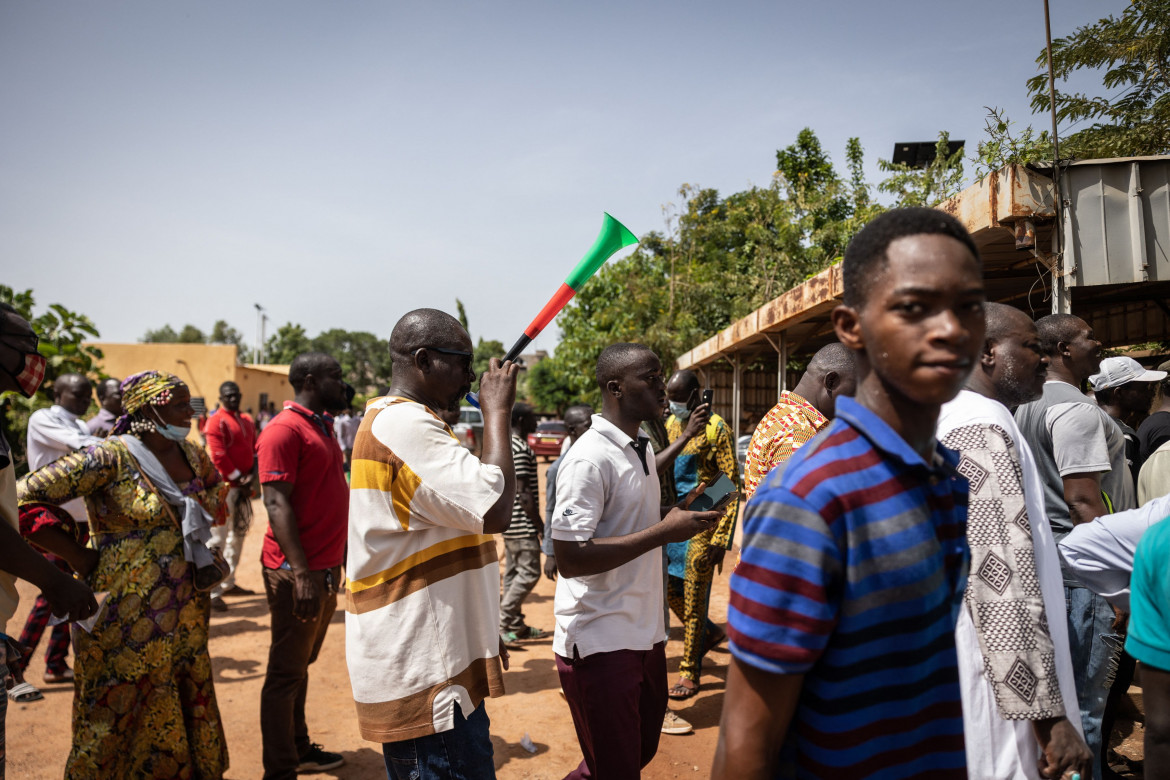Analysis
In Burkina Faso, a reconciliation that divides the nation
Blaise Compaoré, the former president of Burkina Faso sentenced for the killing of Thomas Sankara, returns from exile at the invitation of the current strongman with the excuse of dialogue to stop the jihadists.

It is always difficult to untangle the intricate webs of politics, to understand which thread goes with which, and, above all, to see clearly what kind of fabric one wants to weave. In recent days, the warp and weft of politics in Burkina Faso has been looking more tangled than ever, and it seems almost impossible to find the guiding thread again.
What is warping the threads of politics unlike anything else is the current events: on July 7, at 1:58 p.m. a plane from the Ivory Coast landed in the capital, Ouagadougou. On board was Blaise Compaoré, former president of Burkina Faso; Chantal, his wife; Ali Coulibaly, minister and influential adviser to Ivorian President Alassane Ouattara; and various other political figures.
Blaise came to attend the meeting organized on Friday, July 8, by the current head of state, coup-installed military officer Sandaogo Damiba, which was meant to bring together the former presidents who played an important role after Compaoré’s ousting: Zida, who seized power in the early days; Kafando, who led the transition; and Marc Christian Kaboré, the first president who was democratically elected in 2015, reelected in 2020, but removed from office by Damiba in the January 24, 2022 coup. The meeting was part of the National Reconciliation process, which many are calling “Blaise’s path to amnesty.”
Why did this arrival throw everything into disarray? The answer is simple: because Compaoré was sentenced to life in prison on April 6 by the Military Court in Ouagadougou, as he was found guilty for the assassination of Thomas Sankara and 12 of his comrades during the coup that brought him to power in 1987. Blaise has been in exile in the Ivory Coast since the days of the People’s Revolution (Oct. 30-31, 2014) that led to his ousting after 27 years of unchallenged power.
In the eight years since, he had never returned to Burkina Faso, nor had he appeared at the trial that lasted about six months. Despite being implicated in several assassinations besides Sankara’s, he was nominated for the Nobel Peace Prize and was awarded several honorary titles throughout his political career. His return to Burkina Faso might be tied to a possible risk of splitting the country in two and fomenting guerrilla warfare.
The population immediately split into two camps: those in favor of Blaise, calling him “daddy” and claiming that when he was in power things were good and terrorism was not so out of control; and those in favor of justice, who stand with Mariam Sankara and the relatives of the victims of October 15, 1987, and who called for Blaise’s arrest. People took to the streets, and numerous protesters gathered around Kaboré’s house to ask him not to attend the meeting. Kaboré’s wife also took to the streets and sat next to the women parliamentarians who had gathered there.
The plot goes even deeper, and the January 24 coup is the key to understanding much of what’s taking place. Damiba dismissed the elected president in a violent coup; a few days later, he appeared on TV and set out a long three-year transition period – three times as long as the transition after Blaise’s ousting. He justified the coup by invoking the country’s insecurity, the terrorist attacks, and Kaboré’s inability to manage the situation. But in recent months, insecurity has grown, the terrorist acts have continued, and crime has grown exponentially. Add to that the high cost of living and the difficulty of procuring basic necessities. People are tired and are getting caught up in manufactured narratives.
At Friday’s meeting, Jean Baptista Ouedraogo (present), Kafando and Zida (both absent, one due to health reasons and the other due to the inability to get there) had been invited. Kaboré didn’t want to go, but was brought by force.
Damiba, after pressuring Kaboré to cooperate, tried to reassure the Burkina Faso citizens that the process put in place was not aimed at ensuring impunity for Compaoré, but was intended to help find solutions for a peaceful and cohesive Burkina Faso. Meanwhile, Kaboré and others keep saying that reconciliation cannot be accomplished only at the top and that the people must be involved.
One thing is certain, as the Justice for Sankara Committee that fought for the trial has been saying: there is no path to reconciliation without justice and truth, and right now there is no justice or truth to be found.
Originally published at https://ilmanifesto.it/burkina-faso-la-riconciliazione-che-spacca on 2022-07-09
